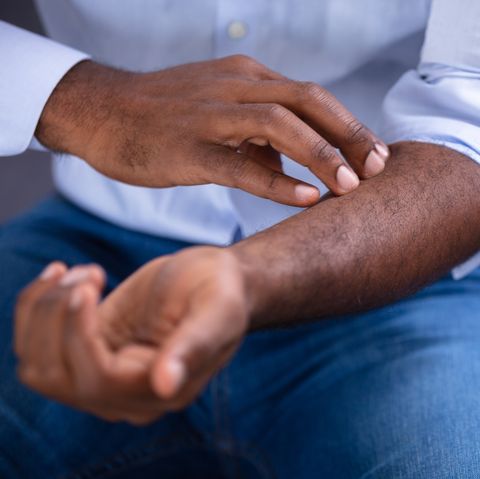Up to a third of people with psoriasis also get psoriatic arthritis (PsA).

The majority of persons are diagnosed between the ages of 30 and 50. However, it can occur at any age. It produces Inflammation, particularly in the joints. It can also have an impact on other sections of the body. Because specific symptoms are similar to rheumatoid arthritis, your doctor may order tests to confirm the diagnosis.
Swollen Joints, Fingers, and Toes
Swelling in the knees, ankles, feet, and hands is common. In most cases, only a few joints are inflamed at a time. As a result, they become uncomfortable and bloated, as well as hot and red at times. When your fingers or toes are damaged, they may take on the shape of a sausage. Psoriatic arthritis can affect joints on both sides of your body, such as knees, ankles, hips, and elbows.
Stiff Joints
Joint pain is frequent. They are usually harsher in the morning.
Back and Shoulder Pain
Inflammation in your spine and hip bones joints may cause pain and stiffness in your neck, upper back, low back, and buttocks.
Enthesitis
Inflammation may also occur when a muscle joins a bone, such as the Achilles tendon behind your heel. As a result, it may be painful to walk and climb stairs.
Nail Pitting
Pitting and ridges in the nails are common in patients with psoriatic arthritis.
Nail Separation
Occasionally, the entire nail pulls away from the nail bed. As a result, the divided portion could be opaque and have a white, yellow, or green hue. This disorder may be referred to as onycholysis by your doctor.
Chest and Rib Pain
Although it is uncommon, chest pain and shortness of breath can be signs of psoriatic arthritis. These can occur if the chest wall and the cartilage that connects your ribs to your breastbone become inflamed. It is also uncommon. However, your lungs or aorta (the large blood vessel that exits your heart) may be impacted.
Fatigue
Both the inflammatory process and the drugs used to treat PsA can leave you weary and psychologically drained. So eat healthily, rest as much as possible, and do some exercise. Also, discuss with your doctor any other probable causes.